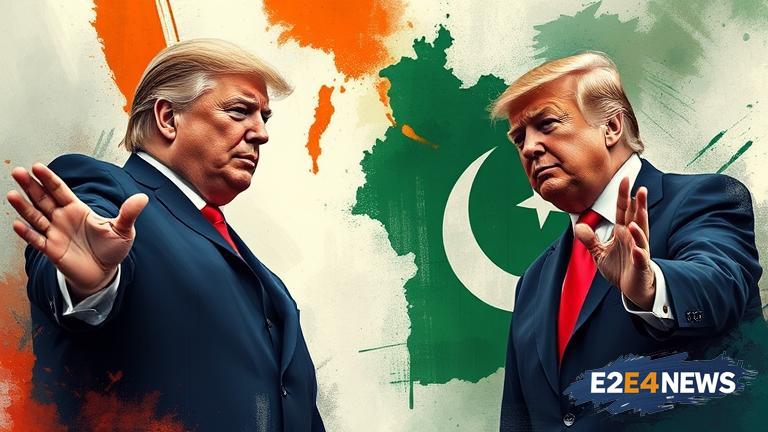The ongoing tensions between India and Pakistan have taken a new turn with US President Donald Trump’s recent claims of 7 aircraft being shot down in the conflict. This statement has raised eyebrows, as it contradicts his initial claim of 5 jets being downed. The Indian government has denied any mediation by the US, stating that the issue will be resolved bilaterally. The conflict between the two nations has been escalating since the Pulwama attack, which killed over 40 Indian security personnel. Pakistan-based militant group Jaish-e-Mohammed claimed responsibility for the attack, leading to increased tensions between the two countries. India has been demanding that Pakistan take action against the militant groups operating from its soil. The US has been trying to play a mediatory role in the conflict, with Trump stating that he has spoken to both Indian Prime Minister Narendra Modi and Pakistani Prime Minister Imran Khan. However, India has made it clear that it will not accept any third-party mediation, and the issue will be resolved through bilateral talks. The Indian Air Force carried out a surgical strike on a Jaish-e-Mohammed camp in Balakot, Pakistan, which led to a retaliation from the Pakistani Air Force. The situation has been volatile, with both countries engaging in a war of words. The international community has been calling for restraint and de-escalation of tensions. The US, China, and other countries have been trying to play a role in reducing tensions between the two nations. The conflict has also had an impact on the global economy, with trade and investment between the two countries being affected. The Indian government has been trying to isolate Pakistan internationally, with a focus on getting it blacklisted by the Financial Action Task Force (FATF). The FATF is an inter-governmental body that sets standards for combating money laundering and terrorist financing. Pakistan has been on the grey list of the FATF since 2018, and India has been pushing for it to be blacklisted. The US has also been putting pressure on Pakistan to take action against militant groups. The situation remains volatile, with both countries engaging in a war of words. The international community is watching the situation closely, with hopes that the tensions will de-escalate soon. The conflict has also raised concerns about the safety of nuclear weapons in the region. Both India and Pakistan are nuclear-armed states, and the conflict has raised fears of a nuclear war. The US and other countries have been trying to reduce tensions and prevent any further escalation. The situation is being closely monitored by the international community, with hopes that a peaceful resolution will be found soon. The Indian government has made it clear that it will not back down, and the issue will be resolved through bilateral talks. The US has been trying to play a role in reducing tensions, but India has made it clear that it will not accept any third-party mediation. The conflict has also had an impact on the regional security dynamics, with other countries in the region watching the situation closely. The situation remains volatile, with both countries engaging in a war of words. The international community is hoping for a peaceful resolution to the conflict, and an end to the tensions between the two nations.
